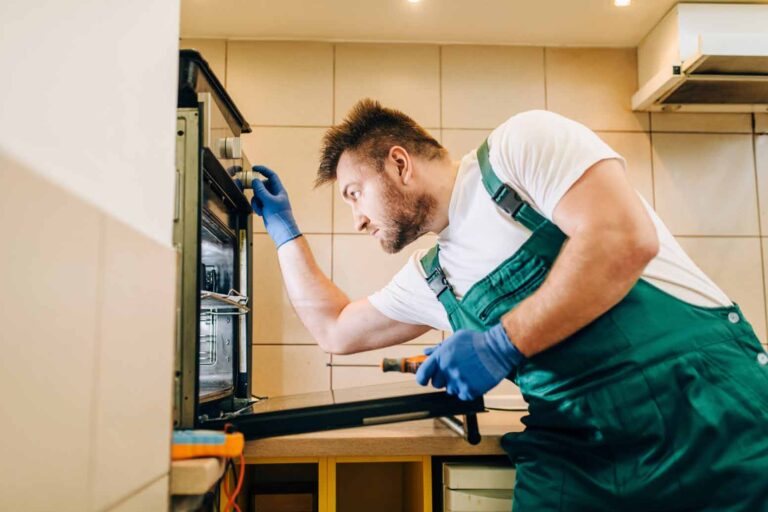How To Get Your Roofing License in the U.S. in 2025

Getting your roofing license is a vital step for operating legally in the U.S in 2025.
It also builds client trust, and gives you access to larger, more lucrative projects. Studies show that licensed contractors earn an average of 20% more than their unlicensed counterparts. They can bid on higher-value jobs and secure premium clients.
However, licensing requirements vary widely across states. Some states, like Florida, have stringent regulations requiring exams and proof of experience, while others, like Texas, have no state-level licensing requirements.
Regardless of where you operate, understanding how to navigate the licensing process is essential for staying competitive in this growing industry.
In this guide, we’ll simplify your path to becoming a licensed roofing professional! Whether you’re aiming to get a Florida roofing license, a roofing license in Illinois, or need to know what states do not require a roofing license, we’ll provide you with a step-by-step breakdown.

Why Do You Need a Roofing License?
Getting a roofing license isn’t just about ticking a box. It’s about proving that you’re a professional who takes their work seriously.
Licensing serves two major purposes: ensuring quality work and protecting consumers. When you become a licensed roofing contractor, you’re meeting state or local standards for education, experience, and insurance.
This not only demonstrates your expertise but also builds trust with clients, who can feel confident hiring someone with the credentials to back up their skills.
Licensed contractors also often earn more by having access to higher-value projects and premium clients, although the specific percentage increase varies by market and state.
Take Florida as an example. Obtaining a state of Florida roofing license shows clients that you’ve met strict qualifications, including passing exams and proving your experience. This level of professionalism not only makes it easier to win their trust but also helps you stand out in a competitive market.
Licensing also reduces liability for you and your clients, ensuring you’re covered in case of accidents or disputes. In short, a roofing license isn’t just a legal requirement; it’s a powerful tool to enhance your career and protect your business.
What License Do You Need to Start a Roofing Company?
The type of license you need to start a roofing company depends on your state and the scope of your work. While some states have specific roofing licenses, others may require general contractor licenses or even specialty licenses for certain types of roofing projects. Here’s a breakdown of common license types:
- General Contractor Licenses: These are often required for larger construction projects that go beyond roofing. If you’re planning to take on big jobs, this license will cover a wider range of work beyond roofing.
- Roofing Contractor Licenses: These are specifically designed for roofing work. Getting one typically means passing exams, proving you have experience, and showing you’ve got the right roofing insurance.
- Specialty Licenses: In some states, like California, you might need a special license for niche services like metal roofing, roof coatings, or solar panel installations. These are perfect if you’re focusing on a specific area and want to stand out as an expert

Steps to Get Your Roofing License
Navigating the licensing process may feel daunting, but breaking it into steps can make it manageable. Here’s a guide to help you get started:
Step 1: Research Your State’s Requirements
Licensing ensures that contractors meet state or local standards, protecting both you and your clients. In 27 states, roofing contractors must obtain a license. And in 13 others, registration is mandatory.
States like Florida and Illinois have particularly strict licensing requirements, which may include passing exams and meeting insurance and bonding thresholds.
For instance, in Florida, obtaining a roofing license requires proof of four years of experience and passing both a trade and business exam, while Illinois mandates a state-level test and insurance coverage up to $500,000.
States like Texas do not have state-level roofing license requirements, but voluntary self regulation is encouraged.
Even in states without statewide requirements, roofing contractors are still subject to general business laws, such as obtaining proper business licenses, liability insurance, or workers’ compensation if they have employees.
Additionally, many states require contractors to comply with local building codes and regulations.
Always check with your city or county to avoid fines or legal issues.
Step 2: Meet Education and Experience Requirements
Most states require you to have relevant experience in the roofing industry before you can apply for a license. This ensures that contractors have the necessary knowledge, skills, and practical expertise to complete roofing projects safely and effectively.
Examples of State Requirements:
- Florida Roofing License Requirements: Florida mandates four years of experience working under a licensed contractor or a combination of education and practical experience. This can include time spent in an accredited trade school or apprenticeship program, which can count toward the overall experience requirement.
- Illinois Roofing License Requirements: In Illinois, applicants must have at least two years of hands-on roofing experience. This ensures that candidates understand the specific challenges of roofing in a state with diverse weather conditions and strict building codes.
Tips for Newcomers: If you’re new to the industry, working under a licensed roofing contractor is one of the best ways to gain the required experience. This allows you to:
- Learn the trade from experienced professionals.
- Familiarize yourself with local building codes and safety regulations.
- Build a network of industry contacts that can support you when starting your own business.
Additional Opportunities to Gain Experience:
- Apprenticeship Programs: Many states offer formal apprenticeship programs that combine on-the-job training with classroom instruction. These programs often count toward the experience requirements for licensing.
- Trade Schools or Vocational Training: Enrolling in a roofing-specific program can accelerate your learning while providing valuable credentials. Some states, like Florida, allow education to substitute for a portion of the required work experience.
Tip! Use tools like the InvoiceFly Time Tracking Software to log your work hours and ensure you meet your state’s experience requirements. Keeping detailed records will make the application process smoother and demonstrate your professionalism.
Step 3: Pass the Required Exams
Many states require aspiring roofing contractors to pass one or more licensing exams to demonstrate their expertise. These exams typically cover essential topics such as roofing techniques, safety practices, local building codes, and business management.
Successfully passing these tests ensures that contractors have the necessary knowledge to perform high-quality work and comply with legal standards.
For example, the Florida roofing license requirements include passing two separate exams:
- Business and Finance Exam: Focuses on financial management, business operations, and legal aspects of running a roofing business. Topics may include tax compliance, contracts, and risk management.
- Trade Knowledge Test: Evaluates technical skills, such as roofing installation methods, materials, and adherence to building codes and safety regulations.
To qualify, candidates must achieve a passing score of 70% or higher on both exams. Preparing for these tests often involves study materials provided by the state licensing board, as well as online resources or local exam prep courses.
Tip: If your state requires multiple exams, schedule them strategically to allow sufficient time for focused preparation on each subject.
Step 4: Submit Your Application and Fees
Once you’ve checked off all the requirements, it’s time to submit your application to your state’s licensing board. This is your final step in officially becoming a licensed roofing contractor!
You’ll need to include all the necessary paperwork, like proof of experience, insurance, bonding, and your exam results. Make sure everything is accurate and complete to avoid any frustrating delays.
How Much Does It Cost? Application fees can vary quite a bit depending on your state. Here are a few examples to give you an idea:
- Florida: The application fee is around $400, which covers processing and possibly part of your exam registration.
- Illinois: You’ll pay about $300 to apply for your roofing license.
- California: Expect to pay $450 for your application, plus another $200 once your license is approved.
- Alabama: For projects over $2,500, you’ll need to pay $165 to apply for a residential roofer’s license.
Double-check all your documents before sending them in. Missing proof of insurance or exam results is one of the most common reasons applications get delayed—and nobody wants to deal with that.

Renewing Your Roofing License
Once you have your roofing license, don’t forget to renew it! This might not be the most exciting part of running your business, but it’s critical.
Most states require you to renew your license annually or biannually. Renewing typically involves submitting updated insurance documents, paying renewal fees, and, in some cases, completing continuing education courses to stay current with industry standards.
Think of it as hitting the refresh button on your credentials. It keeps you eligible for high-value projects and shows clients you’re serious about your craft.
To make it easier, set reminders for renewal deadlines using tools like Invoice Fly Notifications and keep your paperwork organized with a Receipt Scanner. Staying ahead of your renewal not only saves you from last-minute stress but ensures your business keeps running smoothly without any interruptions.
How Can Invoice Fly Help
Obtaining a roofing license in the U.S. may seem like a daunting process, but it’s one of the most important investments you can make in your career.
Licensing not only ensures that your business operates legally, but it also demonstrates your professionalism and builds trust with clients. A license signals to homeowners and project managers that you’re qualified, reliable, and committed to upholding industry standards.
No matter where you work, being licensed opens doors to larger projects, higher earnings, and long-term success. It gives you access to better opportunities, including bidding on commercial contracts and expanding into specialized services like solar or green roofing.
Plus, it protects both you and your clients by ensuring you meet insurance and bonding requirements.
To simplify every aspect of your business, from managing those licenses and tracking deadlines use tools like Invoice Fly’s Roofing Software. You’ll be able to handle licensing requirements efficiently while keeping your focus on growing your business.
So, are you ready to take your roofing career to the next level?
Follow the steps in this guide and download Invoice Fly today!

Jennifer is a skilled senior copywriter with over 10 years of experience in content strategy, creative, and UX writing and other digital marketing disciplines.
Her work prioritizes clarity and conversion optimization (CRO). The approach is deeply rooted in branding, where she crafts compelling narratives and drives unique and meaningful engagement.
Born in Minnesota, North America, she has deep industry knowledge and experience creating content about banking, accounting, travel, food, SaaS products and mobile apps, as she has work for companies such as Ogilvy, Design, Juni and Qustodio, among many others.



